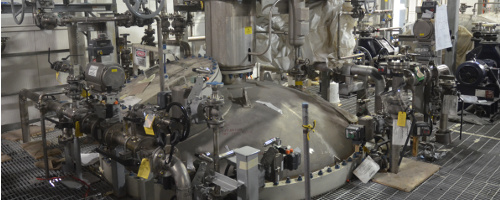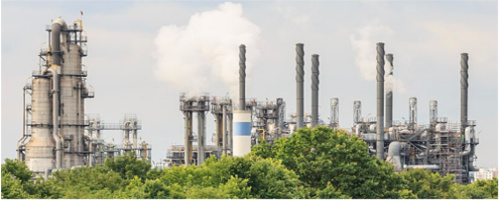Why study Chemical and Materials Engineering (ChME)?
Is it the right career for you?
ChME is a highly versatile profession, so it is common that prospective students do not have a clear idea of the variety of jobs for ChME graduates. The origin of the ChME profession is industrial chemistry: to produce chemicals in industrial scales. For example, chemists synthesize new drug molecules, medical doctors check if they are effective, and if they are, ChME will take care of the scale up to produce them in large quantities.


ChME was involved in the mass production of essential technological innovations in the last century, from fertilizers and pesticides in the agricultural sector; doped semiconductors to which the whole electronics industry is based on; all kinds of polymers and plastics; as well as the above mentioned drugs and vaccines.
ChME was essential in developing the oil economy in the last century, transforming crude oils into usable gasoline or kerosene, and will continue to be essential in this new century by developing new energy vectors, as could be hydrogen or methanol with fuel cells, or in the development of batteries.


The global economic development in the twentieth century also brought pollution, depletion of resources and global warming. Now, once again, ChME is also in the forefront providing solutions, e.g. in recycling materials, in waste treatment, developing pollution mitigation technologies, using biomaterials in manufacturing, etc.
Finally, ChME is nowadays heavily involved in developing new materials, particularly for biomedical applications, with new functionalities, such as smart hydrogels, nanomaterials, ceramics, etc.
What will the future bring? Do you want to be part of it?

Prospective students are encouraged to search online about the diverse world of ChME, such as in professional association websites like AIChE from USA or IChemE from UK.
Typical jobs for ChME graduates:
- Production engineer / management (e.g. optimizing process stability, identifying production bottlenecks and developing cost efficient solutions)
- Research and Development (R&D) (e.g. improving existing processes or developing new ones)
- Formulation engineer (e.g. develop complex mixture products with designed functionalities, as in the consumer care industry, such as cosmetics)
- Operations technician / officer (e.g. taking care of the daily issues in a plant)
- Plant materials engineer (e.g. selection of materials, corrosion prevention, estimating likelihood of failure)
- Engineering Consultant (e.g. helping companies integrating complex software)
- Engineering Technician
- Safety manager (e.g. design and implement appropriate safety measures in processes following relevant regulations)
- Quality control (e.g. check specifications of incoming and outgoing products)
- Project manager (e.g. development and implementation of whole projects)
- Maintenance engineer (e.g. solving all kind of problems in chemical plants)
- Food processing engineer (e.g. develop processes to achieve foods with the desired characteristics)
- Field engineer (e.g. responsible for oil and gas extraction wells)
- Academic




